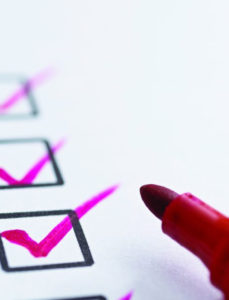HOME INSURANCE: A PRIMER
A properly set up home insurance policy can be the peace of mind.

Home insurance is designed to help you financially if something goes wrong with your home. It’s one of the most important insurance coverages you can have because it protects the very place that protects you.
Home insurance is a contract. Your policy lays out what it covers and what it doesn’t cover. It also includes your rights and responsibilities and those of your home insurance company. So how do you know if you have the right type of home insurance policy? How can you help ensure your home insurance will cover what you need it to cover? Read on to learn some basics.
What does a home insurance policy cover?
Basically, home insurance pays to repair or replace your home or property if it’s damaged in a covered loss, such as theft or fire. A proper home insurance policy also should offer liability protection if someone is injured on your property and then sues you.
Do you have to purchase homeowner’s insurance?
Homeowner’s insurance may be required if you have a mortgage. Your bank will want to make sure the asset is protected, so they’ll likely require you to purchase a homeowner’s policy. They’ll also want to see proof of coverage – sometimes called a binder or an Evidence of Insurance certificate. Such a document will list the insurance limit, deductible, and declare the bank as the mortgage holder.
How much insurance do you need on your home?
The limit for your home policy is based on the cost to replace your home – not the value of the home – and on several other factors. Considerations for replacement cost include:
Construction: The replacement cost of your home will depend greatly on the construction. Is it a wood frame? Masonry? Concrete block? What is the square footage? How about roof construction? All these construction features will help determine the replacement cost of your home.
Personal property: The policy limit for your personal property typically defaults to a percentage of the amount for which your home is covered. For example, if your home is insured for $100,000 and the percentage is 50%, the default personal property limit would be $50,000.
Bonus tip: Highly valuable personal property is excluded from typical homeowner policies. Special property such as antiques, fine art, or jewelry may be covered only up to a certain sublimit. If you have highly valuable property stored within your home, talk to your insurance professional about getting the proper coverage for these items.
Liability insurance: As stated, a basic home insurance policy should come with some liability coverage to protect you if you end up in a lawsuit. Such a suit may stem from someone getting injured on your property.
Bonus tip: Homeowners should have some extra liability protection. An “umbrella” liability policy can add more liability coverage in case you end up in a lawsuit.
What type of deductible should I select?
A typical homeowner policy deductible is between $500-$1,000 (this can vary by state).[i] But there are options for $5,000 all the way up to $100,000 deductibles. Some policies offer percentage deductibles where the deductible is counted as a percentage of the policy limit. For example, if your home is insured for $150,000 and you carry a 10% deductible, your out-of-pocket cost in the event of a claim would be $15,000.
Many homeowners opt for a high deductible to save on the cost of the policy. Bonus tip: Select the highest deductible you can afford. Just keep in mind that if you have a claim, you are responsible for paying the deductible. If the damage is less than the deductible, you will have to make the repairs without the help of insurance. Know your risks and select the right policy.
Home insurance policies don’t cover everything. They contain exclusions. For example, many homeowners policies don’t cover flood damage. Flood insurance must be purchased separately. If you live in a coastal area or near a large body of water, consider purchasing a flood insurance policy.
Bonus tip: Flood insurance has become more important for homeowners in recent years. Flooding can cause catastrophic damage and can also affect homeowners who are not in a so-called “flood zone”.
Knowledge is power. The more you know about homeowners insurance, the better prepared you’ll be if something goes wrong with your home. Get to know your policy’s limits, coverage, and deductibles, so you can help ensure you have the coverage you need, when you need it.
Please consult with a qualified professional and read all of your homeowners insurance documents carefully. Make sure you understand your policy(s) and know what situations are covered or not covered.
[i] https://lendedu.com/blog/average-homeowners-insurance-deductible/
